Politics
/
Rethinking Rural
/
May 30, 2025
Taking away healthcare coverage isn’t just “morally wrong and politically suicidal,” in Senator Josh Hawley’s apt phrase. It’s also putting pressure on rural members of Congress.
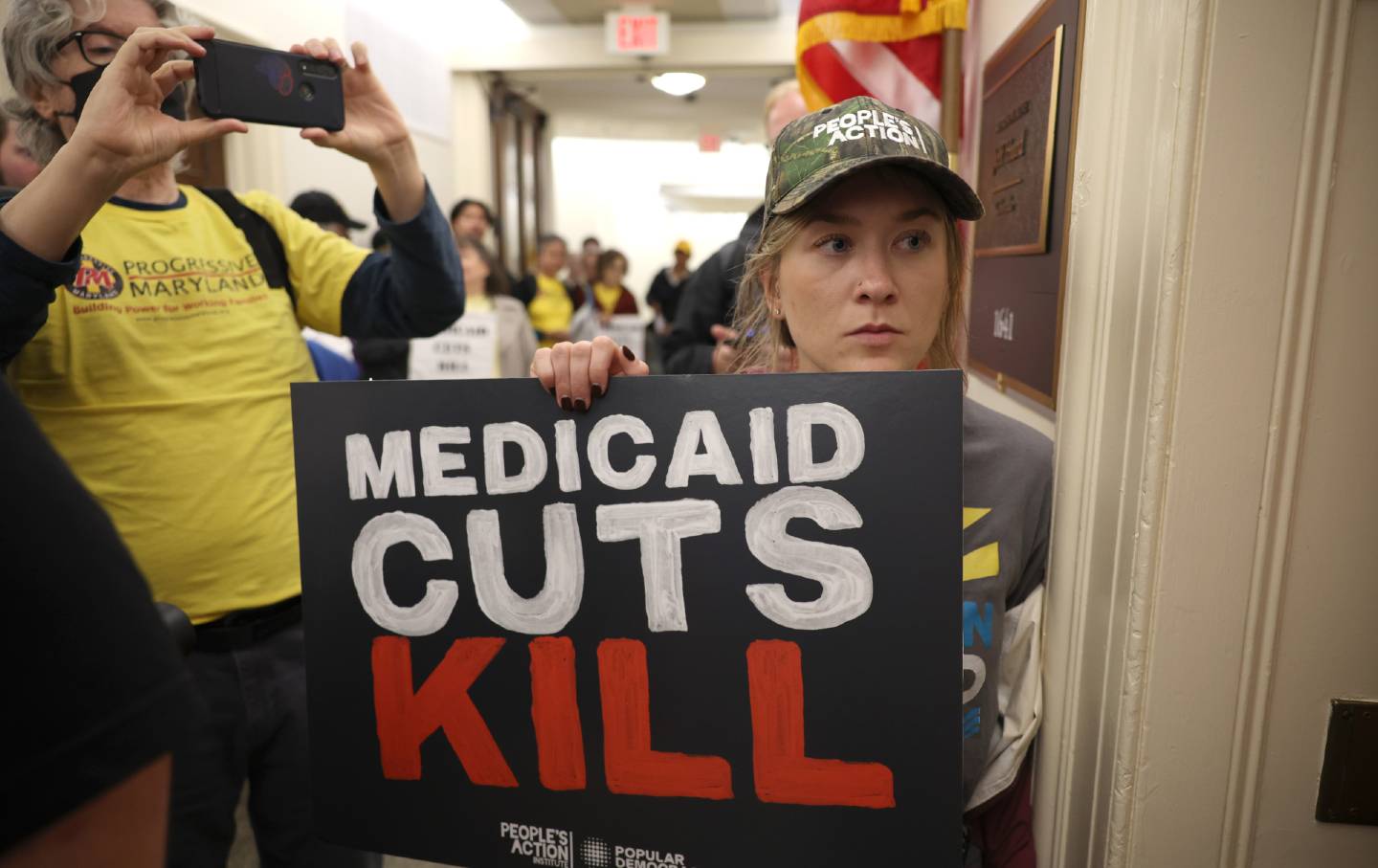

When Tammy Rosing, a homeless behavioral health adviser in Lancaster County, Pennsylvania, was dropped from Medicaid last year due to a bureaucratic snafu, it meant going without medication for a painful autoimmune disease. Only with the help of a team of social workers, volunteer advocates, and a state legislator was Rosing able to get her Medicaid restored. Debt collectors are still after her for a $400 medical bill she incurred during that gap in coverage.
Rosing is part of Put People First! PA, a grassroots group that mobilizes struggling rural and urban Pennsylvanians to defend and strengthen Medicaid. If the GOP’s proposed Medicaid budget cuts go through, legions of folks will be turning to groups like Put People First! for support.
Congress is on the verge of legislating the biggest Medicaid cut in the program’s 60-year history. According to the Congressional Budget Office, the budget reconciliation bill cuts roughly $880 billion from Medicaid, a move that will result in 8.6 million of the poorest Americans losing their healthcare coverage. That’s on top of the 5 million already projected to lose Medicaid coverage over the next decade as a result of other policy changes.
Despite being “morally wrong and politically suicidal,” as Senator Josh Hawley (R-MO) put it, most Republican members of Congress appear poised to support, in Trump’s words, the “big beautiful bill.” But a rift between Republican hard-liners and moderates has opened up around this issue, and organizers are pressuring a couple dozen members of Congress, many serving in largely rural districts and states, who might be willing to break ranks.
Rural Americans have higher maternal and infant mortality rates, higher rates of heart disease, cancer, and stroke, and higher overdose deaths. One in five rural American adults is enrolled in Medicaid, a program that pays for 90 percent of opioid and fentanyl addiction treatment, 62 percent of nursing home stays, half of all births, and one in five hospital visits.
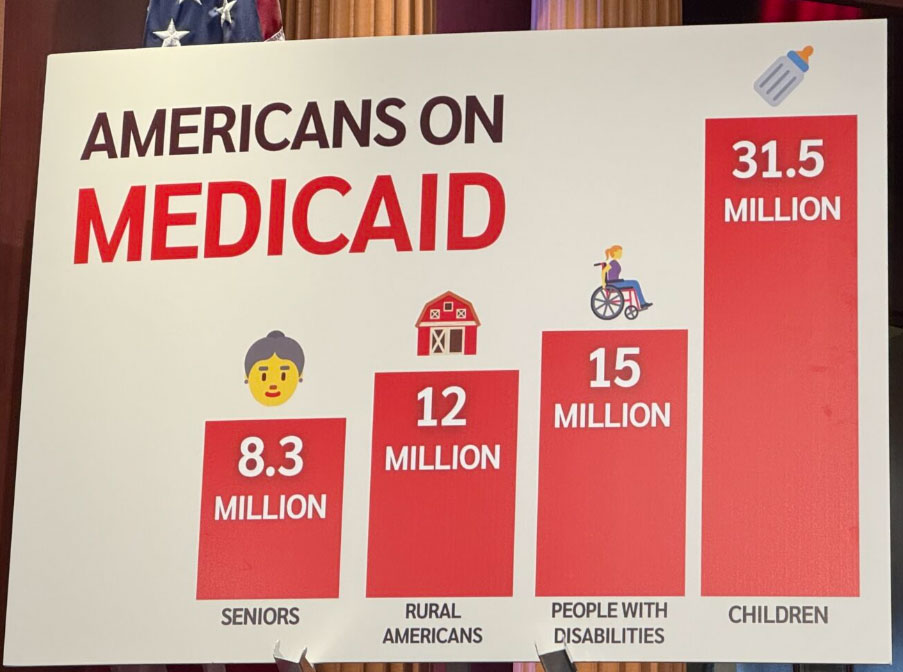
Current Issue

Rural hospitals are in crisis, with many operating at a loss, especially those in the 10 states that have not opted in to Medicaid expansion under the Affordable Care Act. Since 2005, 193 rural hospitals have closed, and many more have eliminated unprofitable services such as hospice care and obstetrics, leaving women in labor to drive long distances to the nearest labor and delivery ward. In addition to stranding patients in medical deserts, hospital closures devastate local economies. In many rural areas, the local hospital is one of the largest employers, second only to public schools.
In the “Pennsylvania Wilds” region north of the Alleghenies, Put People First! PA has been organizing around Medicaid since 2014. It organizes uncovered Pennsylvanians using an innovative model that offers free, volunteer-staffed pop-up health clinics alongside assistance in applying for Medicaid or appealing a denial or termination of benefits. At these “people’s clinics” held at churches, housing projects, and food banks, Put People First! literally meets people where they’re at, building relationships and trust as an on-ramp toward political activation.
Put People First! invites clinic patients to participate in one of five Health Care Rights Committees across the state. There, they are able to connect with others coping with healthcare access crises and get plugged in to state and federal advocacy campaigns. Currently, the group is trying to pass a statewide bill that that would restore adult dental coverage cut from the state’s Medicaid program in 2011.
“A lot of rural people on Medicaid don’t have teeth because all they can get are cleanings or extractions, not root canals or other procedures,” says Harrison Farina, a volunteer coordinator for Put People First! Dental coverage can be life-changing and even lifesaving in the case of untreated abscesses.
Put People First! is also pushing for the creation of a Public Health Advocate that regulates hospitals and other healthcare and insurance companies for the public good. With the backing of the state’s attorney general, the public health advocate would be empowered to curb healthcare mergers and acquisitions that leave residents with a shortage of quality care. (In my 16,000-person town in California, a doctor wouldn’t refer my son for a much-needed MRI, citing the fact that there’s only one MRI machine and so its use must be rationed. In the nearby, extremely poor town of Covelo, average ambulance response time is one hour).
People First! empowers current and former Medicaid recipients to testify at legislative hearings and town halls, meet with legislators, and set the group’s priorities. Tammy Rosing got involved with the group in 2017, when Trump’s election led to her “political awakening.” It wasn’t long before Rosing concluded that “this isn’t just a Trump thing…neither party speaks to the needs of poor people. Change is going to come from below, not above, but only if we get organized.” Put People First! helped Rosing get her Medicaid restored, and Rosing is committed to using her experience to help others navigate the bureaucracy and to “make some real deep change.”
Popular
“swipe left below to view more authors”Swipe →
In addition to its statewide advocacy, Put People First! is also making sure that Pennsylvania’s congressional delegation hears from Medicaid recipients before casting their votes on the reconciliation bill. Its Nonviolent Medicaid Army is running a #MedicaidMonday social media campaign that invites people from across the country to share their stories of medical care, need, and neglect. Their message is clear and (one would hope) compelling: Taking away people’s healthcare is truly devastating.
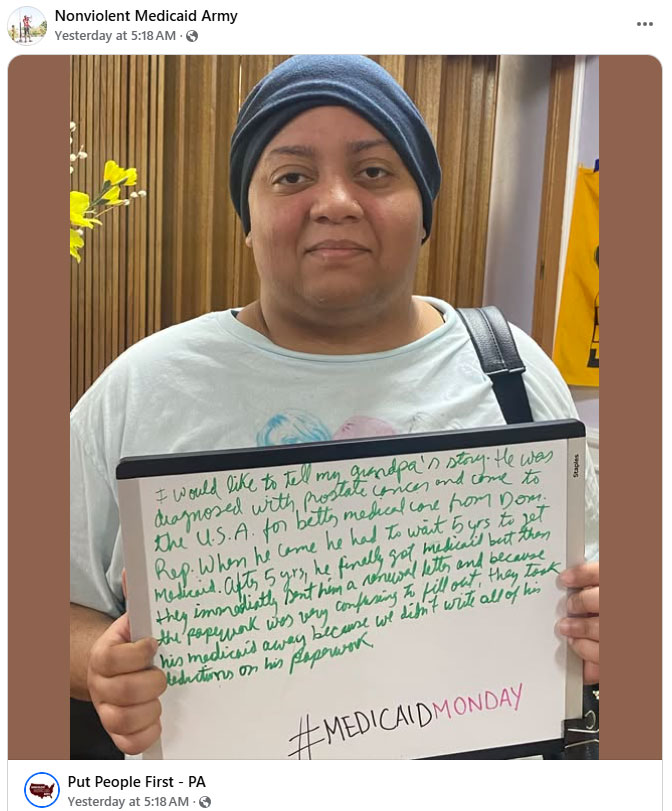
Kentucky Governor Andy Beshear called proposed Medicaid cuts “an attack on rural America.” He’s right. It’s a betrayal of low-income people from Baltimore to Saginaw to the Central Valley of California. All to pay for extending tax cuts that further enrich the 1 percent—a 1 percent that can pay for private helicopter evacuation if a medical emergency finds them far from the nearest hospital.
Cutting Medicaid is about as “beautiful” as a burst appendix on the side of a county highway.
More from The Nation
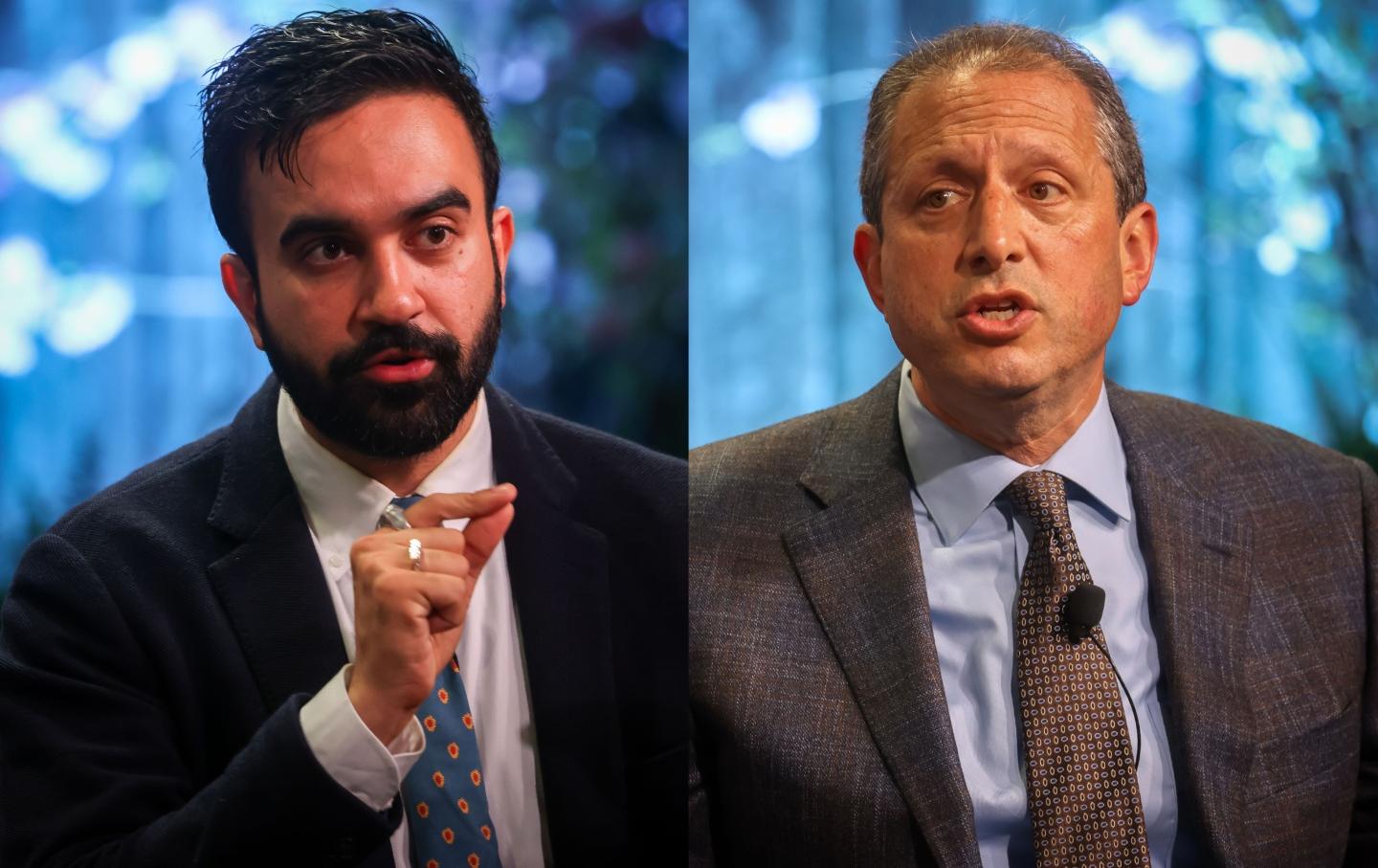
New Yorkers deserve better than Andrew Cuomo.
The Nation
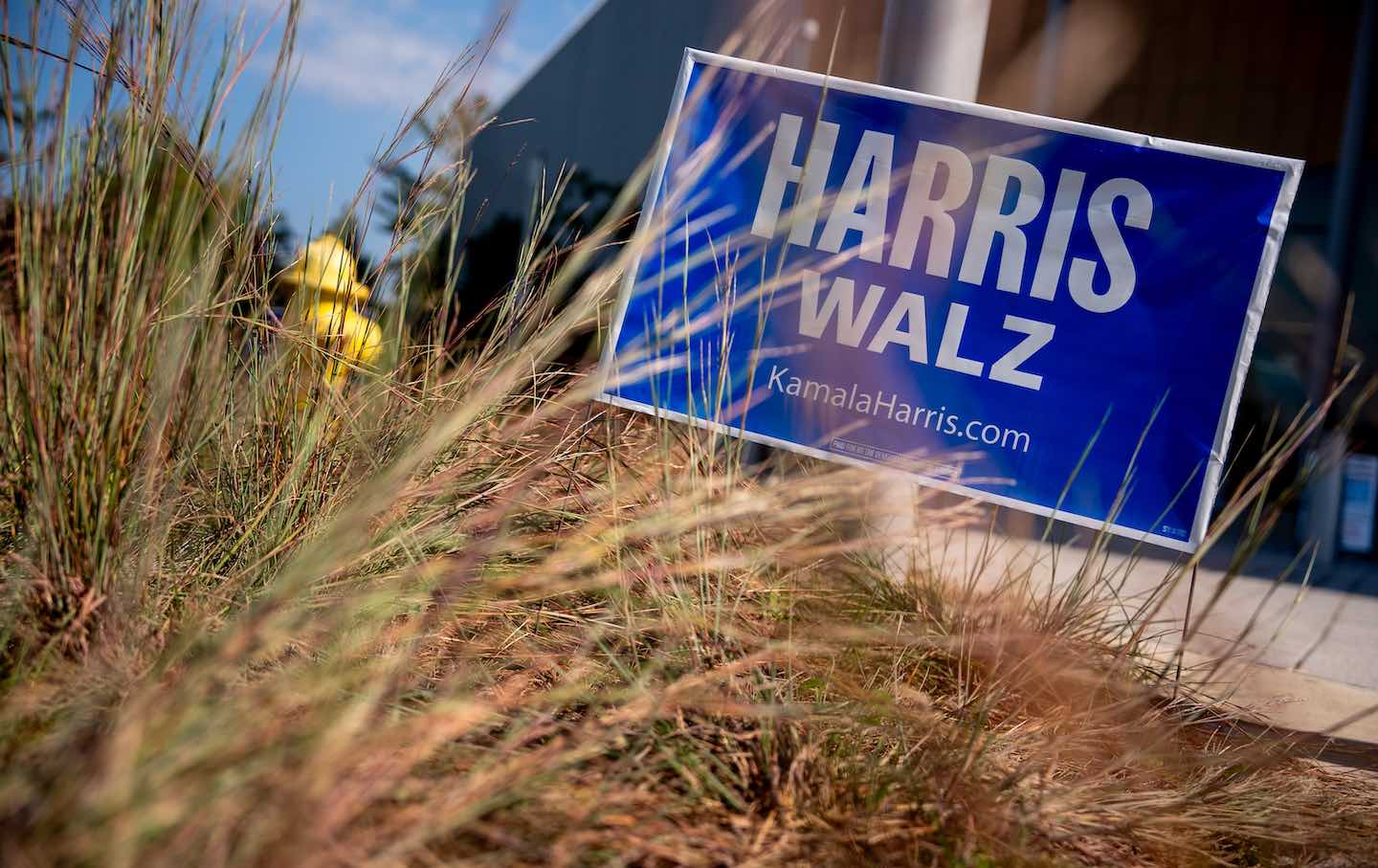
A new analysis of voting patterns in the last election suggests that the party is woefully unprepared for the path forward.
Chris Lehmann
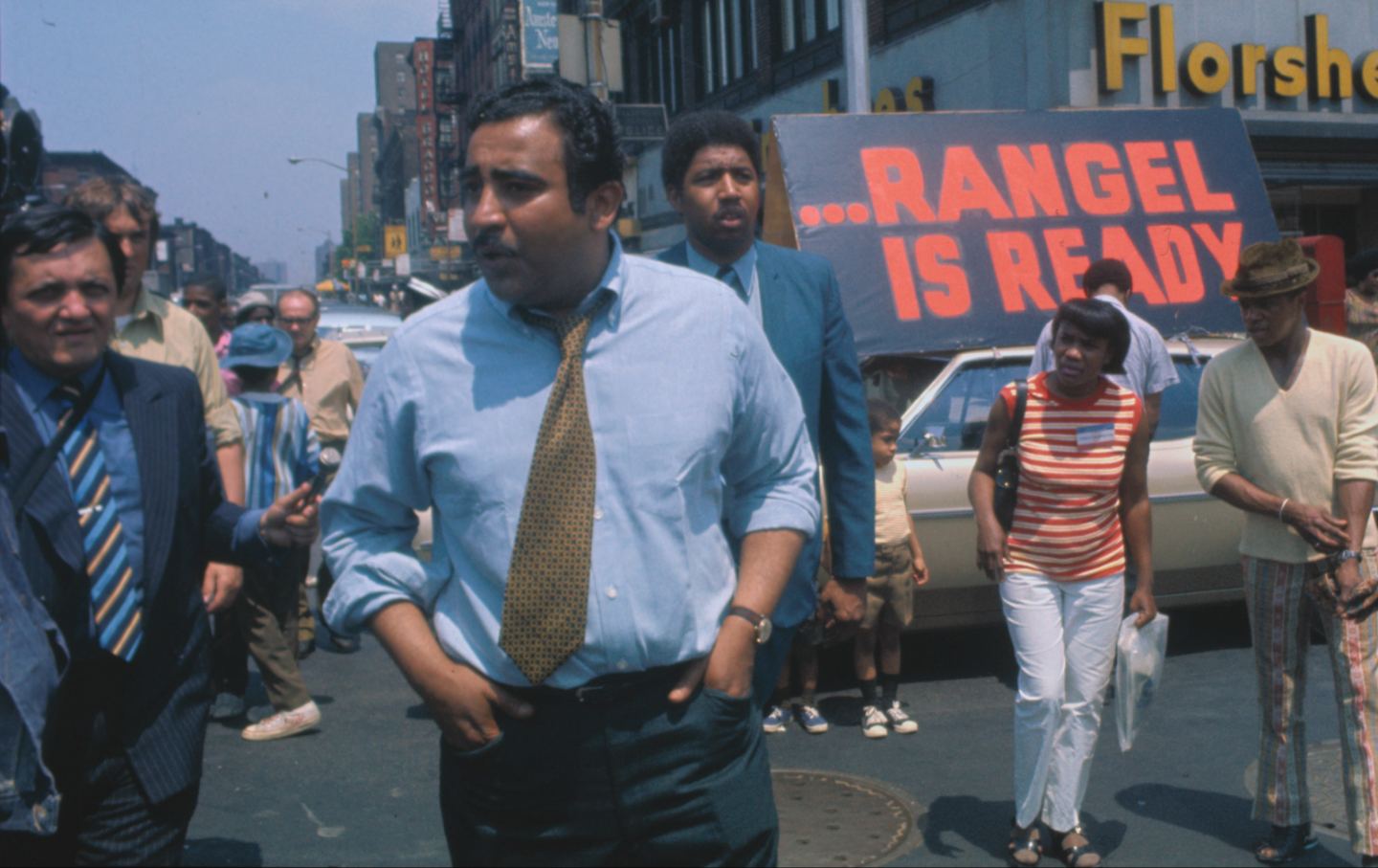
The late congressman’s upending of New York politics by choosing progressivism over partisanship offers a lesson for today.
John Nichols

Felecia Phillips Ollie DD (h.c.) is the inspiring leader and founder of The Equality Network LLC (TEN). With a background in coaching, travel, and a career in news, Felecia brings a unique perspective to promoting diversity and inclusion. Holding a Bachelor’s Degree in English/Communications, she is passionate about creating a more inclusive future. From graduating from Mississippi Valley State University to leading initiatives like the Washington State Department of Ecology’s Equal Employment Opportunity Program, Felecia is dedicated to making a positive impact. Join her journey on our blog as she shares insights and leads the charge for equity through The Equality Network.




